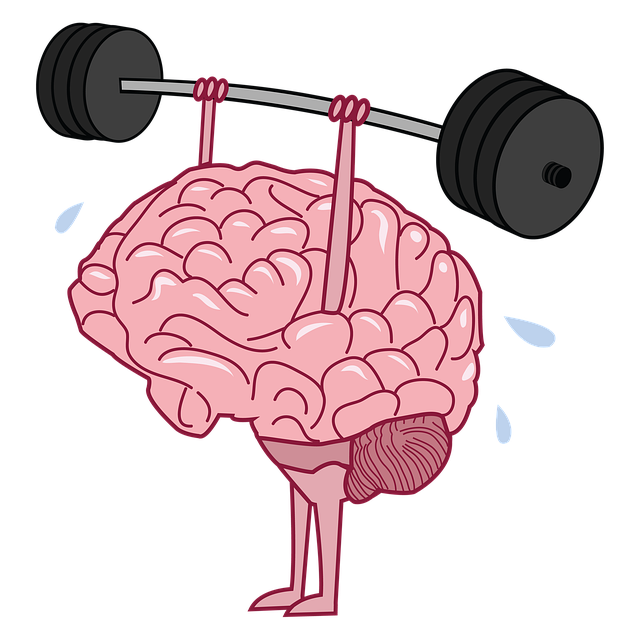Stress management workshops, facilitated by experts like Parker Crisis Counseling Therapy, empower individuals to navigate stress effectively. These sessions tackle sources of stress, from work pressures to personal issues, offering tailored coping mechanisms and promoting mental well-being. The Parker approach, through active listening and structured therapy, fosters resilience and emotional balance. Engaging activities like mindfulness and group discussions make workshops informative and entertaining. A supportive environment, free from judgment, encourages open communication and personal growth. Success is measured through pre-post assessments of mental health, well-being, and performance, ensuring the impact of these sessions extends beyond the workshop hall.
“Stress management workshops are powerful tools for promoting mental well-being, and organizing such sessions can be a rewarding endeavor. This comprehensive guide aims to equip workshop facilitators with essential knowledge and practical strategies. We explore ‘Understanding Stress and Its Impact’ as the foundation for effective counseling, delving into the renowned Parker Crisis Counseling Therapy Approach.
From engaging content design to creating safe spaces, we provide insights on hosting successful workshops. Additionally, we emphasize evaluating outcomes, ensuring programs meet their intended goals. Discover how these steps contribute to fostering resilience and enhancing participants’ quality of life.”
- Understanding Stress and Its Impact: An Overview for Workshop Facilitators
- The Parker Crisis Counseling Therapy Approach: Strategies for Effective Stress Management
- Designing Engaging Workshop Content: Activities and Techniques to Reduce Stress
- Creating a Supportive Environment: Tips for Hosting Stress Management Workshops
- Evaluating and Measuring Success: Assessing the Effectiveness of Your Stress Management Programs
Understanding Stress and Its Impact: An Overview for Workshop Facilitators

Stress is a universal human experience, but its impact on individuals and communities can vary greatly. For workshop facilitators organizing sessions on stress management, it’s crucial to begin by understanding the multifaceted nature of stress. It arises from various sources, including work pressures, personal relationships, financial worries, and health issues. While acute stress can be manageable, chronic stress poses significant risks to mental and physical well-being, potentially leading to conditions like depression and anxiety disorders.
Workshop facilitators play a vital role in empowering individuals with strategies to navigate stress effectively. By incorporating elements from evidence-based practices such as Parker Crisis Counseling Therapy, they can guide participants through risk assessments for mental health professionals, fostering resilience building and depression prevention. Through interactive sessions, facilitators can help attendees identify their unique stressors, develop coping mechanisms tailored to their needs, and cultivate a sense of balance in their lives.
The Parker Crisis Counseling Therapy Approach: Strategies for Effective Stress Management

The Parker Crisis Counseling Therapy Approach offers a comprehensive framework for managing stress and fostering emotional well-being. This therapeutic model emphasizes active listening, empathy, and trust-building as fundamental strategies to help individuals navigate challenging situations. By facilitating open communication, counselors enable clients to express their feelings and concerns freely, creating a safe space for emotional healing processes to begin. Through this approach, participants learn effective crisis intervention guidance tailored to their unique needs.
Incorporating various Emotional Healing Processes, the Parker methodology encourages individuals to explore and process their emotions constructively. Crisis Intervention Guidance techniques are employed to help workshop attendees develop coping mechanisms that enhance their ability to manage stress in real-life scenarios. Ultimately, this approach aims to empower participants with practical tools and insights, enabling them to promote and sustain a healthier emotional balance long after the workshop concludes.
Designing Engaging Workshop Content: Activities and Techniques to Reduce Stress

Designing engaging workshop content is key to effective stress management programs. At Parker Crisis Counseling Therapy, we believe in incorporating a variety of activities and techniques that cater to different learning styles. Interactive exercises like mindfulness meditation, deep breathing sessions, and guided visualizations help participants unwind and gain control over their stress responses. These practices not only foster emotional healing processes but also enhance mental wellness, making them invaluable tools in burnout prevention.
Additionally, our workshops include group discussions and role-playing scenarios to encourage open communication and shared experiences. By facilitating these safe spaces, we enable participants to exchange strategies that have worked for them, fostering a sense of community and collective resilience against stress. These dynamic approaches ensure that each workshop is not just informative but also entertaining, leaving attendees with practical tools they can immediately implement in their daily lives.
Creating a Supportive Environment: Tips for Hosting Stress Management Workshops

Creating a supportive environment is key to hosting effective stress management workshops. This includes ensuring a safe and judgment-free space where participants feel comfortable sharing their experiences and insights. At Parker Crisis Counseling Therapy, we prioritize building a community of care and empathy. Our sessions are designed to foster open dialogue, encouraging attendees to actively engage in exercises that promote mental wellness and resilience building.
By incorporating best practices from Trauma Support Services, our workshops create an atmosphere conducive to healing and personal growth. We utilize various techniques to make the experience inclusive and impactful. This involves tailoring activities to cater to different learning styles, ensuring everyone can benefit from the session. The goal is to equip participants with practical tools for managing stress, so they can leave feeling empowered and better equipped to navigate life’s challenges.
Evaluating and Measuring Success: Assessing the Effectiveness of Your Stress Management Programs

Evaluating the success of stress management workshops is a vital step in ensuring their long-term impact and effectiveness. Organizations like Parker Crisis Counseling Therapy emphasize the importance of measuring outcomes to refine and improve programs. This involves assessing participants’ mental health, well-being, and work performance both before and after the workshop series. By comparing these data points, you can gauge the program’s contribution to burnout prevention and overall stress reduction.
A comprehensive risk assessment for mental health professionals is another key component of evaluation. This includes tracking participant feedback, satisfaction levels, and changes in coping strategies. Through these measures, organizations can identify areas that resonate strongly with attendees and those that need adjustment. Promoting positive thinking and fostering a supportive environment are often reflected in such assessments, indicating successful program outcomes.
Stress management workshops, enriched by evidence-based practices like the Parker Crisis Counseling Therapy Approach, can significantly improve participants’ well-being. By designing engaging content, cultivating supportive environments, and meticulously evaluating success, facilitators can empower individuals to navigate life’s challenges with resilience. This comprehensive approach ensures that stress is not just managed but transformed into a catalyst for personal growth.














